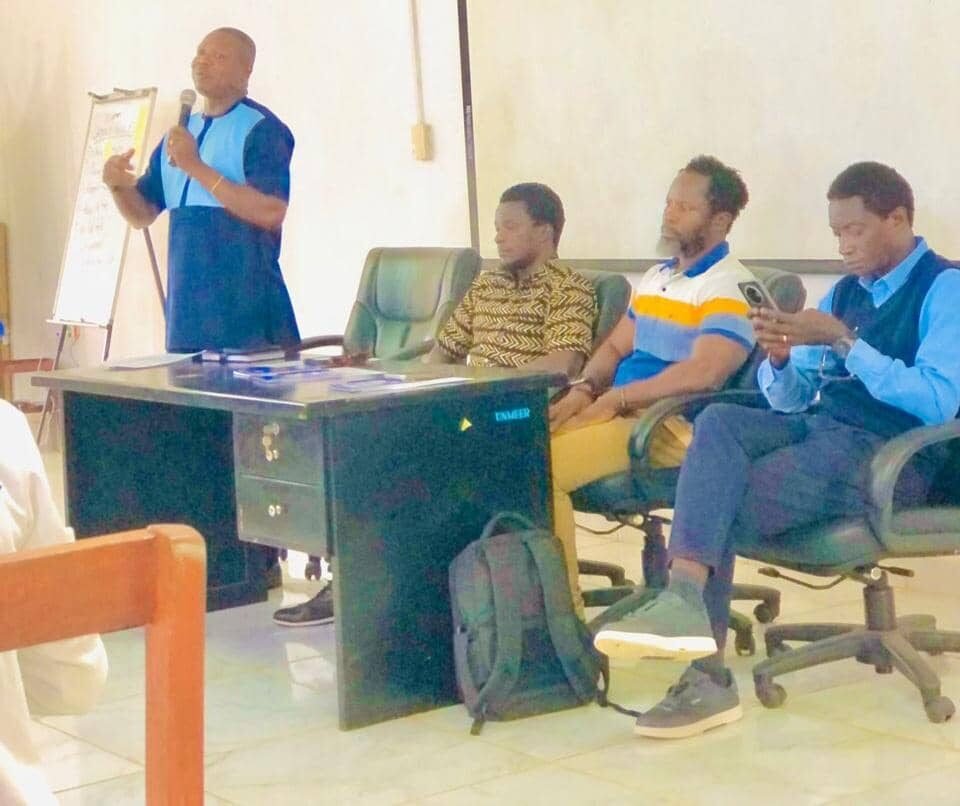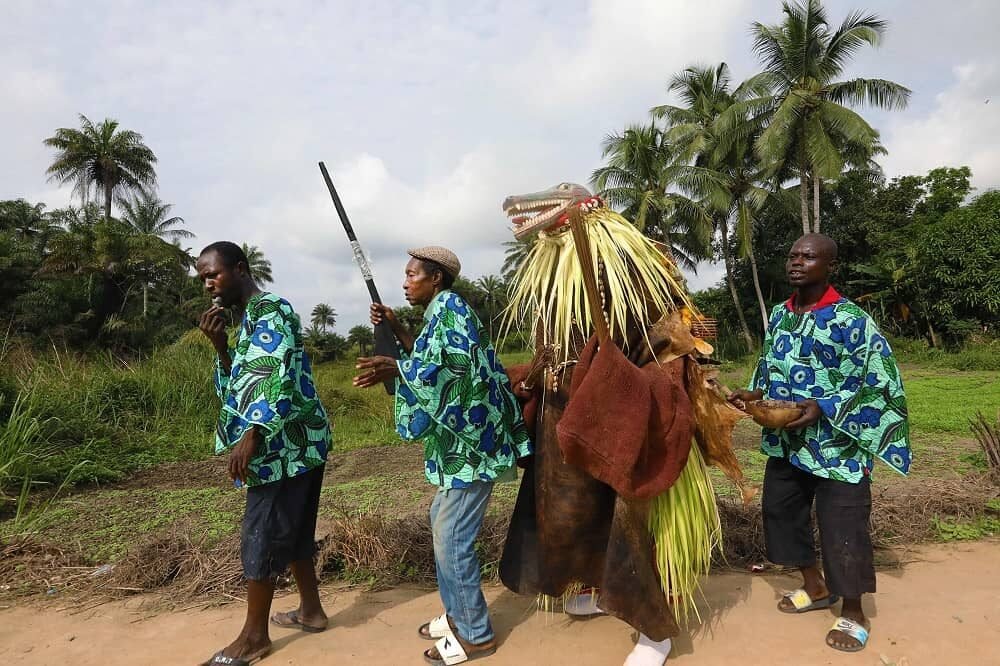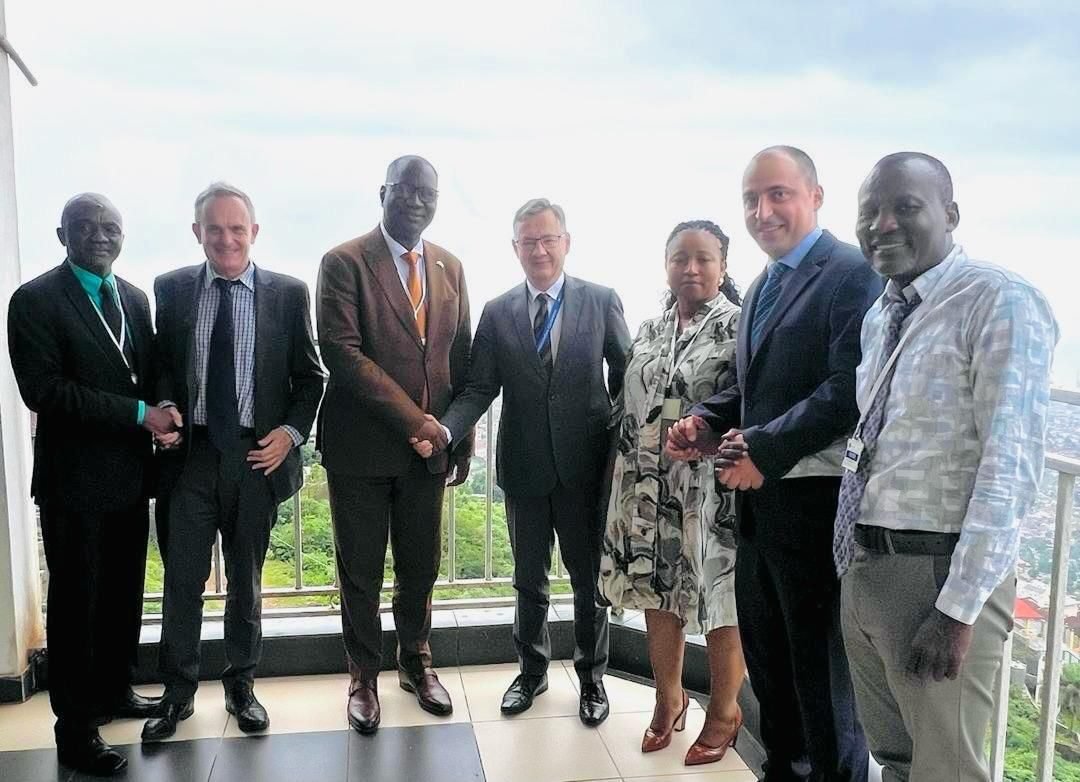IMC ENGAGES NORTHWEST STAKEHOLDERS IN REVIEW OF 2020 MEDIA ACT
By Amb. Sallieu Sankoh (Center)

In a move to modernize Sierra Leone’s media regulatory framework, the Independent Media Commission (IMC) on Thursday, 10th July 2025, convened a Regional Stakeholder Consultation on the implementation of Tripartite Committee Recommendation 76, which calls for a comprehensive review of the IMC Act of 2020.
The event, held at the World Food Programme (WFP) Compound in Port Loko District, was supported by International IDEA and funded by the European Union. It brought together a cross-section of stakeholders from Karene, Kambia, and Port Loko districts, including media practitioners, civil society organizations (CSOs), representatives from the Sierra Leone Association of Journalists (SLAJ), youth leaders, local authorities, and community-based organizations.
In his keynote address, Joseph Kapuwa Esq, Chairman of the IMC, stressed the urgency of revisiting existing legislation to match today’s digital realities.
“When these laws were originally introduced, social media was virtually nonexistent,” he remarked. “Yet today, social platforms have become the primary source of information—and misinformation. As media professionals, our work impacts the integrity and reputations of individuals and institutions. Therefore, it is imperative that we review what is in the Act to ensure it aligns with contemporary challenges. We must not use the media as a weapon to attack others,” he concluded.
The consultation was facilitated by Dr. Francis Sowa Esq, a leading media scholar and regulatory expert. He provided a comprehensive presentation on the key pillars of Recommendation 76, which include:
- Reviewing the appointment process of the IMC Chairperson, to promote greater transparency and independence;
- Strengthening the Commission’s regulatory and enforcement powers, ensuring it can effectively uphold ethical standards;
- Addressing the growing influence of social media, particularly its role in the spread of hate speech and misinformation during electoral periods.
Dr. Sowa emphasized that while social media offers opportunities for public engagement and freedom of expression, it also presents risks that must be managed through responsible regulation.
The session was designed to be interactive and inclusive, with participants split into working groups to discuss challenges within the current Act and propose practical reforms. This participatory approach ensured that voices from grassroots media, youth platforms, and marginalized communities were equally heard.
One of the participants, Ms. Yakoya Kamara, a broadcaster with Radio Bankasoka, expressed appreciation for the initiative.
“This is a timely and inclusive engagement. It’s encouraging to see all sectors: media, civil society, youth, and local leaders brought together to reflect on and contribute to the reform of our media laws. This is the kind of national conversation we need to protect both press freedom and public dignity,” she said.
The regional consultation is part of a broader national process aimed at ensuring that media regulation in Sierra Leone remains democratic, adaptive, and enforceable in the digital age. Similar engagements are expected across other regions in the coming times, as the IMC continues to gather stakeholder input before proposing amendments to Parliament.
As Sierra Leone continues to strengthen its democratic institutions, the reform of the IMC Act stands as a critical step toward ensuring media accountability, freedom of expression, and the responsible use of communication technologies.
Stay Updated! 📩
Subscribe to our newsletter for the latest news, insights, and exclusive updates. Don't miss out




